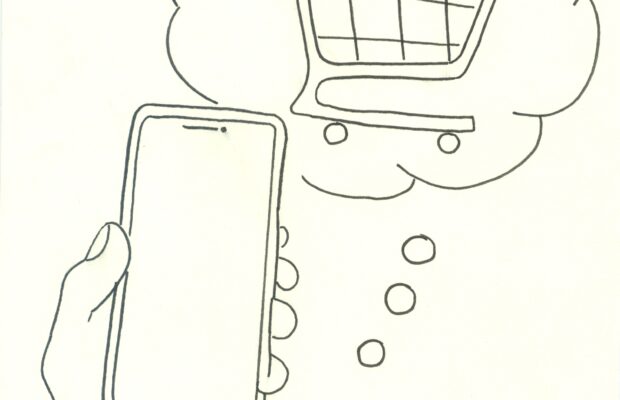Trend cycle encourages lack of individuality

The trend cycle encouraged by social media, namely Tik Tok, is inescapable in its efforts to convince the viewer that they need to buy every product under the sun in order to have the perfect skin, perfect makeup routine, perfect body…but it’s impossible to achieve perfection in an ever-changing, over-consuming society set out to profit on one’s insecurities.
Naturally, everyone has the desire to fit in. It’s normal that after scrolling through Tik Tok and seeing that everyone is buying certain clothes or products, you’ll feel as if you need to be a part of the trend too. However, what’s considered to be “in” will probably be different the next day.
The sad reality of the constant encouragement to buy more products is that it’s furthered by brands to make the customer feel as if they “need” to buy whatever they’re advertising to fit a certain ideal- eg. makeup for the perfect “no makeup” routine. But after sitting and thinking of it, does that even make sense? The idea that buying a new material item to add to your ever-growing collection will finally satisfy the urge to be caught up with the trend, will change how people perceive you to be “effortlessly beautiful,” even though you’ve gone to painstaking lengths to be perceived this way.
At the end of the day, the coolest and trendiest thing there is to do is what brings you joy. The impact of overconsumption has gotten to the point where there are more shopping malls in America than high schools, according to a publication from Washington State University. Although it’s not necessarily the fault of the buyer, as a society we should focus less on buying new things constantly and really focus on if a new purchase is worth it when we do buy something.
However, this may sound overwhelmingly negative and almost insoluble. You may be thinking, “The buyer is not at fault for the encouragement of overconsumption, but it’s their responsibility to deal with its consequences?!” But the solution to overconsumption is to focus on what you love rather than what society considers desirable for the moment. For example, social media may consider the textbook definition of self-care to be enjoying a bubble bath with expensive bath salts then doing your fifteen-step skincare routine, followed by writing affirmations in a diary. If this is what works for you, then that’s awesome! However, what you consider self-care could be watching your favorite Netflix show after a quick shower. Both are valid as long as you are doing what you truly enjoy, and in doing what you enjoy, you eliminate the unnecessary expenses caused by the trend cycle.



